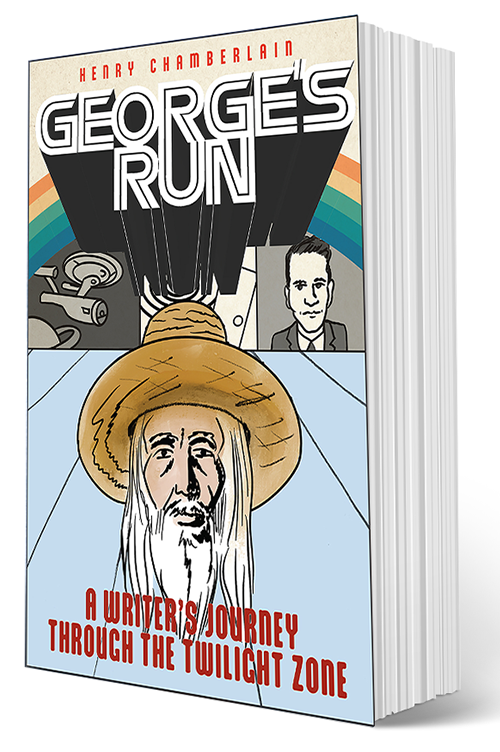
CESARE by Jerome Charyn
Cesare: A Novel of War-Torn Berlin by Jerome Charyn. Bellevue Literary Press, 2020, 368 pages, $26.99.
Jerome Charyn’s latest novel encompasses the decline of the Third Reich as seen through the eyes of a special set of characters. It’s about a country that has lost its soul and about a young man who hungers to feed his soul. Charyn conjures up a narrative punctuated with powerful imagery such as when he steadily rolls out thoughts of Georges Rouault, artist of sad kings, clowns, and Christ. Most prominent of Charyn’s recurring themes comes from the silent film classic about the diabolical Dr. Caligari and Cesare, his somnambulist slave. What better metaphor for someone claiming that they were trapped into following orders. That is the life of the “Cesare” in this novel, one Erik Holderman, a small but vital cog in search of redemption.

Still from The Cabinet of Dr. Caligari, 1920
The ways of the world are writ large here. This is the story about a Caligari and a Cesare as well as a whole people who became, as an incisive bestseller so phrased it, “Hitler’s willing executioners.” Yet even in this dark world there is room for light. Erik is not merely a zombie slave. Nor is Canaris merely his Dr. Caligari. Between the two of them, they mean to undermine the Nazis as much as they can and save Jewish lives, one life at at time. This is mostly a dark world and yet one that somehow allows for the existence of Emil, a mystical dwarf who could have walked right out of a Georges Rouault painting.

The Little Dwarf by George Rouault, 1938
Erik, the obedient assassin, finds his fate inextricably linked to Lisalein, a most beguiling woman who equally courts sympathy and danger. All comes to a head when Lisa’s life is in peril once she ventures too close to the false paradise of Theresienstadt. She can’t help but follow her father who is convinced that the little cultural hamlet will prove to be his haven. The narrative definitely has much of the energy of a thriller as Erik must run to keep up with events. But there is so much more here. This is a very dark world, after all, and that requires the fine scalpel of a master storyteller to reveal truth. Much in the same spirit as Kurt Vonnegut’s Slaughterhouse-Five, with its underscoring the tragedy of the Allied bombings of Dresden, Jerome Charyn underscores the tragedy of Theresienstadt, an all too real place that trapped and killed–and haunts to this very day.

Saturn Devouring His Son by Francisco Goya, 1819–1823
Jerome Charyn has a highly distinctive voice in the same company with other literary greats like Saul Bellow or Isaac Bashevis Singer. Part of Charyn’s magic is his use of sustained imagery and metaphor. He has his favorite motifs which include wolves, werewolves, magicians, criminals, and tattoos, all sorts of things that either evoke something disturbing, supernatural, or otherworldly. In this new novel, for instance, he describes Hitler as a magician with his henchmen wolves. And it makes sense that Charyn would gravitate to the Nazi way station of Theresienstadt. It hadn’t been enough for the Nazis to deceive and/or kidnap Jews into this glorified holding pen. The Nazis forced Jews to oversee each other and even determine who would be next to go on to Auschwitz. That brings us to one last Charyn motif in this novel, one of the most sobering depictions of unbridled inhumanity, Goya’s Saturn Devouring His Son. In a novel full of its share of the grotesque, it takes an artist with a precise touch such as Charyn to achieve such artful results.










